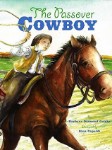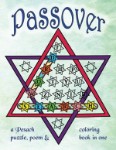Jewish Socratic Questions in an Age without Plato by Yehuda Halper

Buy this book at Amazon
Permitting and Forbidding Open Inquiry in 12-15th Century Europe and North Africa
Maimonides Library for Philosophy and Religion
Yehuda Halper examines Jewish depictions of Socrates and Socratic questioning of the divine among European and North African Jews of the 12th-15th centuries. Without direct access to Plato, their understanding of Socrates is indirect, based on legendary material, on fragmentary quotations from Plato, or on Aristotle. Out of these sources, Jewish authors of this period formed two distinct views of Socrates: one as a wise, ascetic, monotheist, and the other as a vocal skeptic. The latter view has its roots in Plato’s Apology where Socrates describes his divine mandate to question all knowledge, including knowledge of the divine. After exploring how this and similar questions arise in the works of Judah Halevi and the Hebrew Averroes, Halper traces how such open-questioning of the divine arises in the works of Maimonides, Jacob Anatoli, Gersonides, and Abraham Bibago.
The book's page at the publisher's site
















